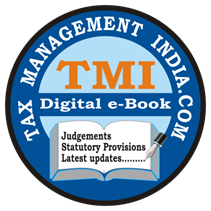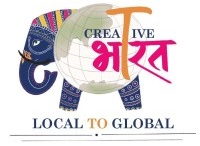India Inbound - Foreigners Visiting India
India has emerged as a global hub for innovation and technology, with a vibrant industry and start up ecosystem that fosters creativity and entrepreneurship. From cutting-edge advancements in IT and biotechnology to breakthroughs in renewable energy and space exploration, India's innovation landscape is thriving, attracting investment and talent from around the world.

Types of Indian Visas
Tourist Visa:
This type of visa is issued for tourism purposes, allowing travellers to visit India for leisure, sightseeing, and recreational activities. It is usually granted for short durations.
Business Visa:
Issued to individuals intending to visit India for business purposes such as meetings, conferences, or exploring business opportunities.
Employment Visa:
This visa is for foreign nationals intending to work in India. It's typically issued to skilled professionals, highly qualified individuals, or those transferred by their employer to work in India.
Student Visa:
Issued to foreign students enrolled in recognized educational institutions in India. It permits them to pursue studies in various fields.
Medical Visa:
Granted to individuals seeking medical treatment in India. This includes both the patient and accompanying individuals such as family members or caregivers.
Intern Visa:
For foreign nationals seeking internship opportunities with Indian companies, institutions, or NGOs.
Entry Visa:
This visa is issued to persons of Indian origin or foreigners who have a long-term relationship with India and are eligible for a long-term visa. It can be for multiple entries and is generally valid for a longer duration.
Post Arrival
In country regulatory requirements for Foreigners in India - Applicable to Long-Term Stay on Work or Student Visas
Registration with the Foreigners Regional Registration Office (FRRO):
Foreign nationals holding certain types of visas, particularly long-term visas, may be required to register with the FRRO within a specified period after arrival in India. This registration process involves providing personal details, visa information, and residential address to the authorities.
Residence Permit Extension:
Depending on the duration of stay granted on the long-term visa, visa holders may need to extend their residence permit before it expires. This involves submitting an application for extension along with the required documents to the relevant immigration authorities.
Police Verification:
In some cases, especially for certain employment visas or visas related to sensitive areas, visa holders may be subject to police verification. This involves local law enforcement agencies conducting background checks to verify the applicant's credentials and ensure security.
Changes of Address or Jurisdiction:
Long-term visa holders are generally required to report any changes in their residential address or circumstances to the authorities. This is usually done through the FRRO or local police station.
Renewal or Conversion of Visa:
If the circumstances change or if the visa holder wishes to switch to a different visa category during their stay in India, they may need to apply for visa renewal or conversion accordingly.
Exit Formalities:
When leaving India permanently or for an extended period, visa holders must ensure compliance with exit formalities, such as surrendering their resident permit or informing the relevant authorities.
Form C:
Primary purpose of Form C is to provide information about the foreign national's arrival in India, including personal details, passport information, visa details, and residential address in India.
OCI/PIO Card Services:
OCI (Overseas Citizenship of India) and PIO (Person of Indian Origin) are special categories of immigration status provided by the Indian government for individuals of Indian origin living abroad.
For further information, assistance or guidance on the regulations for an India Visa, please reach out to our team of experts. Contact Us
Why Choose Us
Expert Advice &
Professional Support
Efficient Service &
Transparent Pricing
Always Secure &
Compliant
Hassle Free Travel &
Peace of Mind
Find out why choosing TTK Visas will help you get the right advice and timely support for your visa needs. Know more
Frequently Asked Questions (FAQs)
Expand/Collapse





























